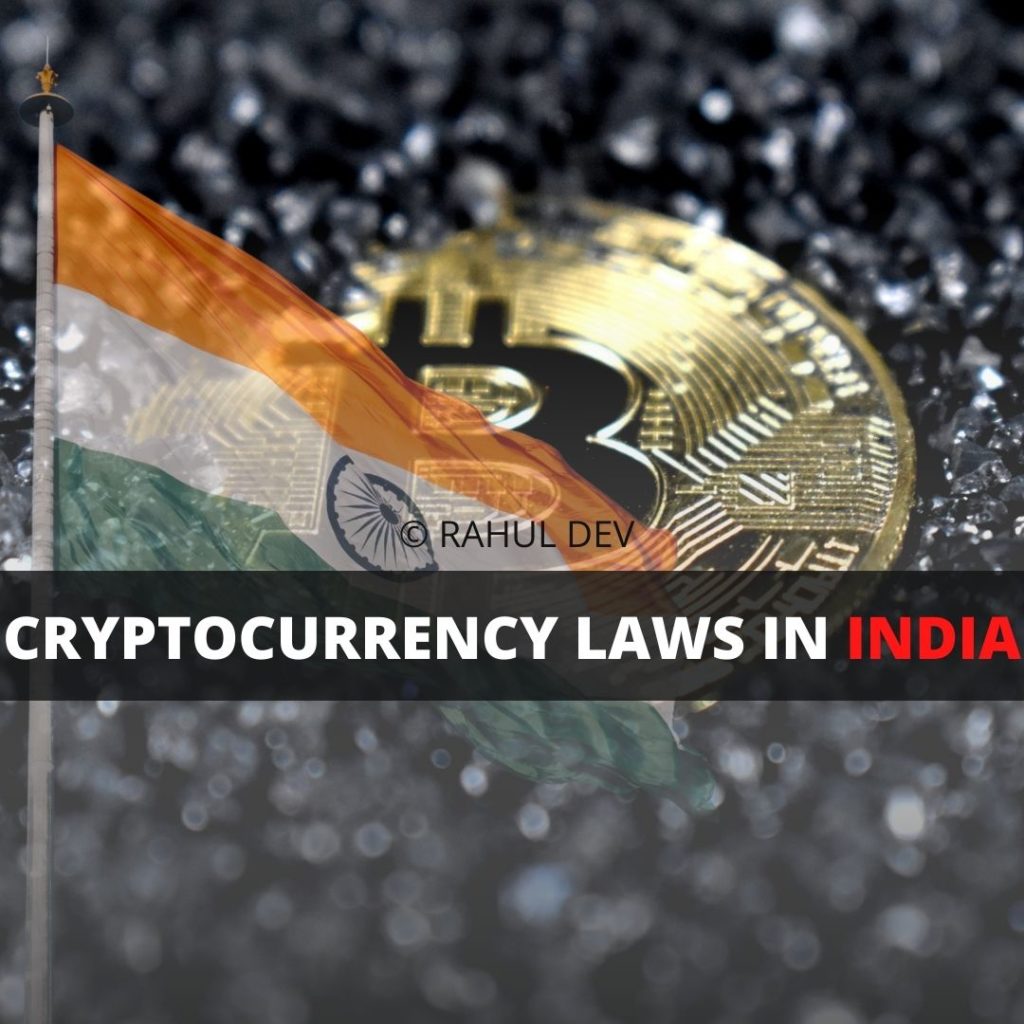
Well-defined cryptocurrency law in India is the need of the hour. Draft National Strategy on Blockchain, 2021 incorporates the advantageous aspects of Crypto…
Since cryptocurrencies are virtual assets they are not deemed as legal tender in India. While exchanges are legal, the deficiency of a strong regulatory authority makes it risky for some cryptocurrency services; and creative technologies to run in India. Regardless, cryptocurrency exchange laws have grown increasingly rigid.
In 2018 the Reserve Bank of India (RBI) disallowed banks; and any other authorized monetary organizations from “sanctioning or resolving virtual currencies”.
Subsequently, RBI announced that it had not allocated any approvals to any establishment to employ a strategy or trade; but had dispensed warnings about handling virtual currencies and included a prerequisite for firms to unwind or exit their roles.
It furthermore substantiated that modern prohibitive laws were scheduled. The sweeping restriction restricted the exchange of cryptocurrencies on local exchanges. Consequently, it gave standing exchanges a deadline till 6 July 2018, to wind down.
In 2020, a landmark Supreme Court judgment decreed that the prohibition was unconstitutional; and nullified the ban, permitting exchanges to reopen.

The RBI’s 2018 circular introduced on April 6, 2018, authorized all establishments governed by it would not market virtual currencies or offer any assistance to enable the same. This demonstrates the Indian government’s notions that the concept of virtual and cryptocurrency is suspicious.
Also, post the circular, establishments that were offering such aids were warned to depart the trade in three months; which not just led to falling trade gaps, but also numerous exchanges closing their company. However, the Supreme Court in 2020 removed the prohibition in attempts to restore the Indian virtual currency industry after its 2018 deadlock.
The Three-Judge Bench in its decision asserted that while the RBI as a central bank has the authority to assume pre-emptive policies, the same is not upheld by the proportionality to the obstacle being dealt with by such a prohibition.
In this context, the court’s perspective on the bigger issues concerning virtual currencies has more significance than its decree of setting aside the circular. Extensively, there were three substantial points before the court, if virtual currencies are equivalent to money, if RBI had the authority to legislate issues associated with virtual currencies and whether this circular was a reasonable exercise of this authority.
It was argued that virtual currencies did not amount to money, but were goods that do not come within the ambit of RBI’s authority. However, by exhaustively studying the role of ‘Money’ and its definitions in other legislative jurisdictions, the court concluded on a reasonable practical strategy.
If an intangible asset can function under specific conditions as money then RBI can certainly monitor and handle it. While this strategy may be reasonable, the understanding of the court corroborates that any inquiry into the legal nature of cryptocurrencies is left open to ambiguity and assumptions.
The RBI circular did not ban all transactions in virtual currencies, but rather directed organizations governed by RBI to not offer banking aids to those committed to trading or promoting the exchange of virtual currencies.
Thus, cryptocurrency cannot be recycled for fiat currency and the connection between the alternative economy of cryptocurrency and the national economy is cut; making virtual tokens irrelevant, and in effect, amounting to a prohibitive regulation.
However, the court made two essential conclusions on this:
(a) RBI is only instructing entities that it is empowered to govern them. It is not forbidding all exchange in virtual currencies, which continues to be allowed, even if made almost irrelevant.
(b) The extent of the RBI’s authorities expands to governing possible threats to the financial system; even if the activity is not part of the credit payment system.
The court acknowledged the particular fact, that RBI has not indicated any semblance of any threat or damages endured by its subsidiary entities.
This failure, the court argues is fatal to the RBI circular as a thorough analysis of whether the embargo was proportionate to the harm shows that such damages were not proven.
In the past, RBI has declared the conceivable monetary, functional, legal, and security threats associated with cryptocurrencies on numerous occasions. In December 2017, the Ministry of Finance published a statement that explained that virtual currencies are not valid tenders and do not have regulatory authorization or safety in India.
Also, the investors and parties marketing in them are perpetuating the same completely at their own risk which should be avoided. In April 2018, RBI declared that companies and financial institutions governed by it must not trade in virtual currencies or offer services for enabling any individual or organization in marketing with or finalizing virtual currencies.
In July 2019, a Committee established by the Ministry of Finance to investigate difficulties of virtual currencies recommended various aspects of the exchange in its report. The Committee suggested that all isolated cryptocurrencies must be prohibited in India. Likewise, the Committee formulated a draft Bill prohibiting cryptocurrency in the nation.
The Committee reported that there are two primary standards through which cryptocurrencies are generating money. First, via Initial Coin Offerings, wherein digital tokens are published in exchange for other assets. Next, by utilizing it as a way of exchange or a payment process. Till February 2019, there were over 2,000 cryptocurrencies that were functioning all over the world, with a global market capitalization of nearly 120 billion dollars.
Cryptocurrencies are prone to market variations and the absence of a national regime makes it impossible to oversee them. For example, in 2017, the price of Bitcoin cryptocurrency was approximately 20,000 dollars per token, which decreased to 3,800 dollars per token by 2018. The Ministry of Finance, in a public announcement, pointed out that the expense of virtual currencies is a course of sheer speculation ensuing in surge and volatility in their expenses.
The Committee also commented that there are numerous susceptibilities in the structure of cryptocurrencies that leave customers or investors prone to fraud. These constitute phishing, cyber-threats, and Ponzi schemes. For example, a Rs 2,000 crore Ponzi scheme was discovered in 2018. Additionally, cryptocurrency commerce is irreversible, which implies after an exchange is made, there is no manner to rectify it.
The Committee also examined that cryptocurrencies can retain adverse fallouts on India’s energy pressure. Substantiating transactions in a distributed system affects high electricity consumption and expects high computation energy. The Committee cited a survey that calculated that 19 homes in the USA can be powered for a day by the electricity expended in an individual transaction of the bitcoin cryptocurrency.
The Financial Action Task Force, an inter-governmental establishment to thwart money laundering, in its statement (2014) identified that virtual currencies offer better obscurity than conventional payment tools.
This makes them more susceptible to money-laundering and illicit appropriation for terror financing.
The Committee remarked that the decentralized essence; and the obscurity which cryptocurrencies give makes it hard for law enforcement agencies to chase individuals implicated in illicit actions.
When the Supreme Court raised the prohibition against the virtual currency in India; it fortuitously solidified an opening for establishing constructive remedies to the issues at play.
The cryptocurrency world must work towards a carefully designed regulatory structure that enables its growth. If the RBI does not continue with its position; then it must observe subtle multilateral outcomes competent of handling law enforcement interests; the equilibrium of the financial structure and the growth of a credible virtual currency ecosystem.
The Indian administration is now examining the introduction of a different bill called the; “Cryptocurrency and Regulation of Official Digital Currency Bill, 2021” (“New Bill”). It will be identical to its earlier versions. However, it aims to prohibit isolated cryptocurrencies in India with specific anomalies to improving the underlying technology and exchange of cryptocurrency, and offer a structure for establishing an authorized digital currency which will be published by the RBI.
The New Bill understands the grey area of cryptocurrency legislation and recommends prohibiting all the private cryptocurrencies. However, it is nonetheless a grey area relating to which all cryptocurrency will subside under the purview of private cryptocurrency.
The RBI has advised the community to scrutinize the probable abuse of private cryptocurrencies in various reasonable means. However, if the New Bill requires an extensive embargo on private cryptocurrencies; it will lead the cryptocurrency investors to capitalize and trade in cryptocurrency in unmonitored exchanges.
Additionally, the purpose of initiating legislation concerned with virtual currency/ cryptocurrency is to streamline the method of exchanging; and clenching in a safer technological climate.
Nonetheless, even with the beginning of state-owned cryptocurrency which will be governed by the RBI; the obstacles affected in investment and holding of cryptocurrency shall stay the same.
Moreover, previously in March 2021, as per the latest revisions to the Schedule III of the Companies Act, 2013; the Government has authorized that from the recent financial year, the corporations publish their interests in cryptocurrencies.
That is to say, the corporations have to now publish revenue or expenses on transactions of cryptocurrency or virtual currency; the percentage of holding, and elements of deposits or advances from any individual for the basis of exchange or investing in cryptocurrency or virtual currency.
This specific action has been received with open arms by the individuals handling the crypto sector, as it is recognized the same would open the door for all Indian corporations to include Crypto on their balance sheets.
Based on the above; the inference that can be safely drawn is that clarity is absent concerning cryptocurrency laws in India. Well-defined cryptocurrency legislation for crypto trading commerce, blockchain technology, investors; and those engaged in such areas is the need of the hour.
Interestingly, the advantages of cryptocurrency were brought out in the Draft National Strategy on Blockchain, 2021; disclosed by the Ministry of Electronics and Information Technology. Thus, prohibiting universal virtual currency; which has influenced several countries is not the best feasible remedy for the growth of India.
The administration is compelled to take an important step in the direction of governing cryptocurrency; as a path onward to keep the enthusiasm of investors and the general public in the evolving country.
Though it has been substantiated by Mrs. Nirmala Sitharam, the Union Finance Minister, that there will not exist an outright ban on cryptocurrency; but a limited window will be given to the general public to experiment with blockchain, bitcoins, and cryptocurrency. It will be important to settle back; and examine the Government proposed laws concerning cryptocurrencies before going ahead in that recommendation.
Our team of advanced patent attorneys assists clients with patent searches, drafting patent applications, and patent (intellectual property) agreements, including licensing and non-disclosure agreements.
Advocate Rahul Dev is a Patent Attorney & International Business Lawyer practicing Technology, Intellectual Property & Corporate Laws. He is reachable at rd (at) patentbusinesslawyer (dot) com & @rdpatentlawyer on Twitter.
Quoted in and contributed to 50+ national & international publications (Bloomberg, FirstPost, SwissInfo, Outlook Money, Yahoo News, Times of India, Economic Times, Business Standard, Quartz, Global Legal Post, International Bar Association, LawAsia, BioSpectrum Asia, Digital News Asia, e27, Leaders Speak, Entrepreneur India, VCCircle, AutoTech).
Regularly invited to speak at international & national platforms (conferences, TV channels, seminars, corporate trainings, government workshops) on technology, patents, business strategy, legal developments, leadership & management.
Working closely with patent attorneys along with international law firms with significant experience with lawyers in Asia Pacific providing services to clients in US and Europe. Flagship services include international patent and trademark filings, patent services in India and global patent consulting services.
Global Blockchain Lawyers (www.GlobalBlockchainLawyers.com) is a digital platform to discuss legal issues, latest technology and legal developments, and applicable laws in the dynamic field of Digital Currency, Blockchain, Bitcoin, Cryptocurrency and raising capital through the sale of tokens or coins (ICO or Initial Coin Offerings).
Blockchain ecosystem in India is evolving at a rapid pace and a proactive legal approach is required by blockchain lawyers in India to understand the complex nature of applicable laws and regulations.
Read About Patent FIling Guide



